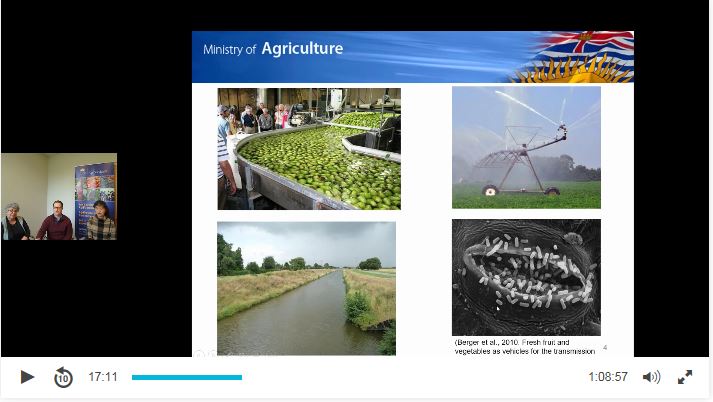Good agricultural practices
Get a whole-farm approach covering all aspects of food safety of crop and livestock production. These good agricultural practices will help you to:
- Assess the risks of your daily farming practices
- Minimize those risks
- Customize a program for your individual farm
- Streamline record keeping and traceability requirements
Communicable diseases
Use these frequently asked questions to answer your questions related to communicable diseases, including COVID-19 and on-farm food safety.
Good agricultural practices guides
Use these practices to address your risks, determine if written practices are needed and what records are to be kept:
The practices are also available in the following languages:
Producers are responsible for complying with all relevant federal, provincial and municipal legislation and bylaws that deal with the production of food. Referring to these guides and practices is not a substitute for reference to the legislation itself.
Training and support tools
Use the support tools, how-to guide, templates and examples for writing practices. These examples can be used as is or modified to suit your needs. Get advice on how to deliver effective food safety training.
Start your on-farm food safety plan
Keep track of which good agricultural practice applies to your operation, what written practices and records are required, and which training needs should be addressed. Checklist to identify your food safety risks and implement your practices.
These organizations have good information on identifying risks:
- United States Department of Agriculture
- World Health Organization
- Ministry for Primary Industries (New Zealand)
Additional resources
Find more information about food safety issues including risk assessments and best practices.
- Food Standards Australia/New Zealand
- Food Standards Agency United Kingdom
- FoodSafety.Gov United States
Horticulture
- Good agricultural practices network for education and training Cornell University
- Good agriculture practices University of California, Division of Agriculture and Natural Resources
- Post harvest library Postharvest Technology, University of California
- Food safety U.S. Food and Drug Administration
Education
Food Safety Education Centre U.S. Department of Agriculture

Access the webinar on maintaining the safety of fresh produce by monitoring the quality of irrigation water. (registration required)
Foodborne illness
Learn about applicable legislation and regulations:
Producers are responsible for complying with all relevant federal, provincial, and municipal legislation and bylaws.
